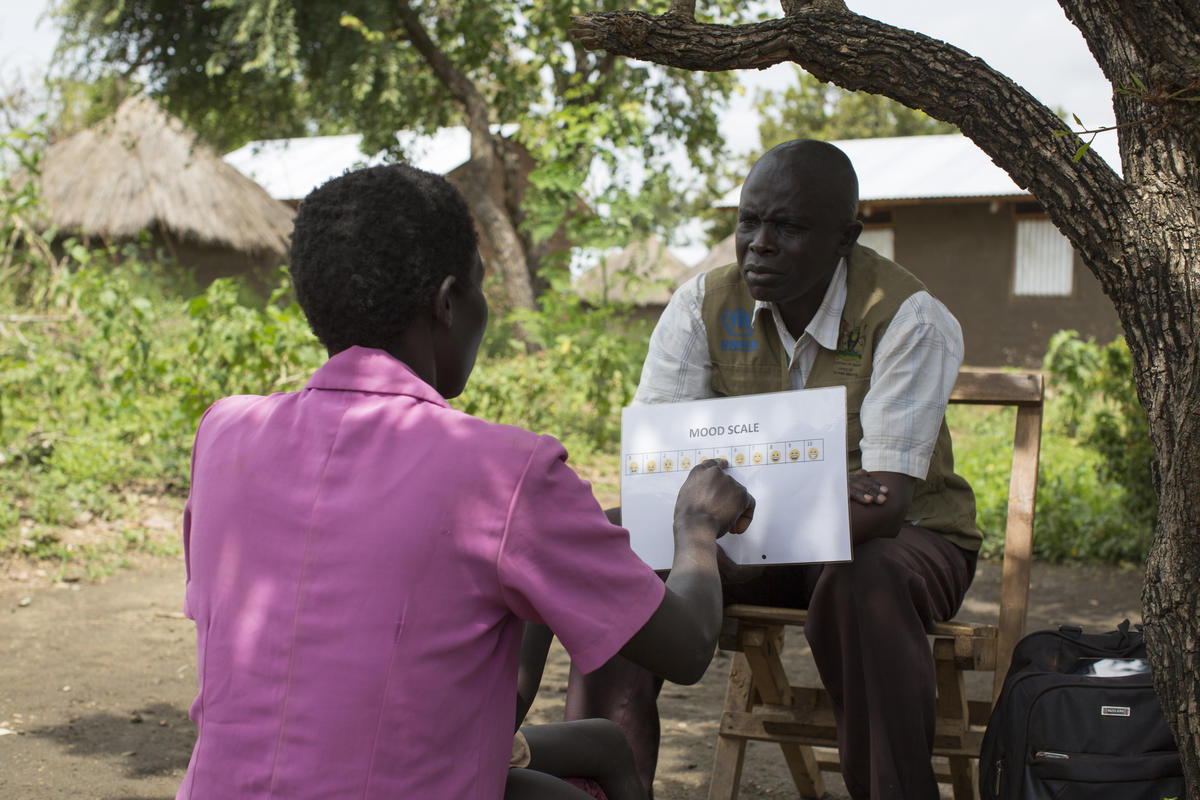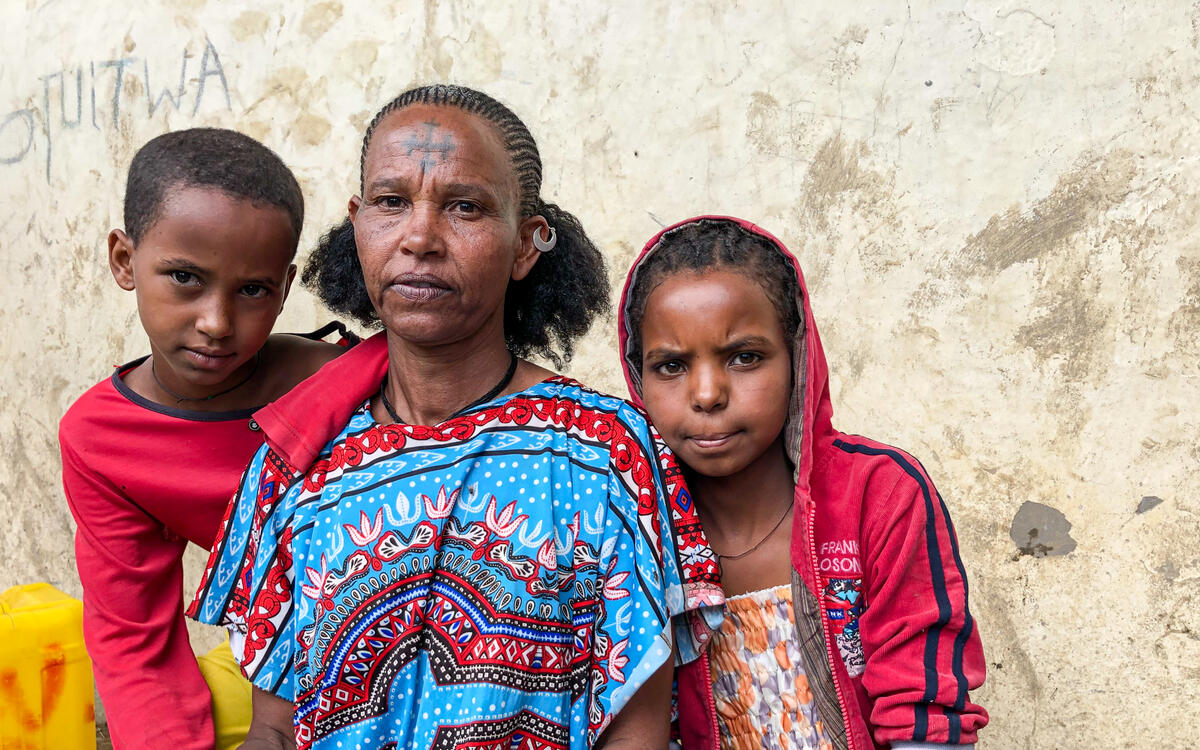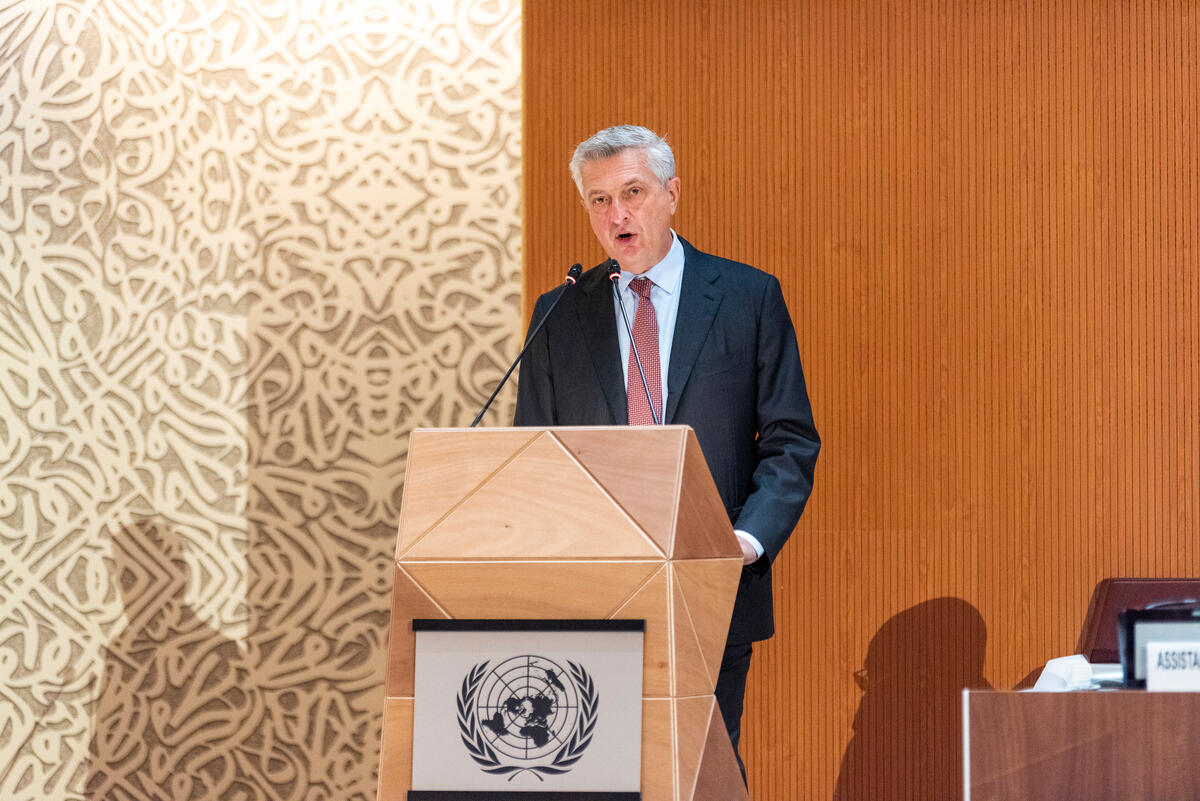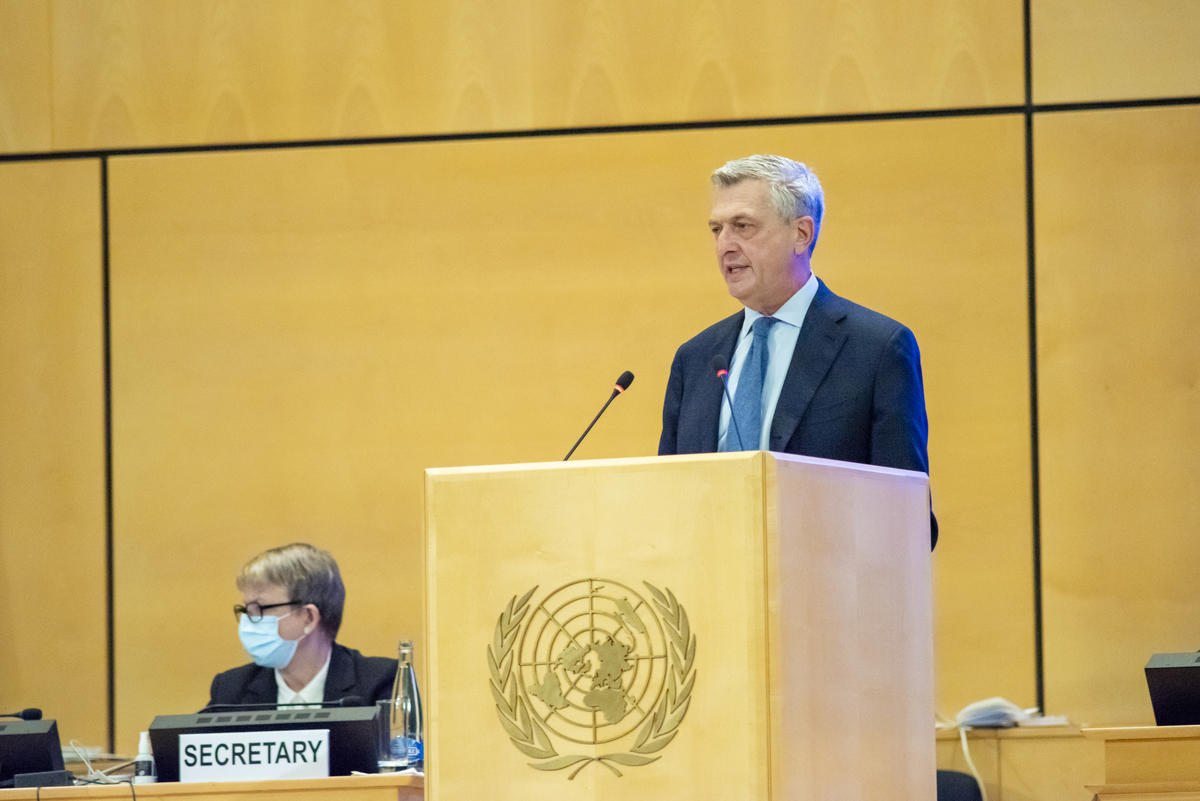ExCom Meeting: Top UNHCR official urges improved protection for the displaced
ExCom Meeting: Top UNHCR official urges improved protection for the displaced

GENEVA, October 5 (UNHCR) - The UN refugee agency, faced with full-blown displacement crises across West, North and East Africa, on Wednesday urged the international community to have another look at how to ensure protection for the world's refugees, internally displaced and stateless.
In a speech to the annual meeting of UNHCR's governing Executive Committee, Assistant High Commissioner for Protection Erika Feller said that while the world had responded to displacement emergencies in 2011 with extraordinary acts of generosity, improvement was urgently needed in three broad areas - refugee protection in emergency situations; burden sharing among states; and tensions between national interests and international responsibilities.
Feller focused on emergencies in Libya, Côte d'Ivoire and Somalia, each of which has seen hundreds of thousands of people being forcibly displaced, and often into inherently unsafe locations where humanitarian efforts are difficult or dangerous to mount and can quickly become overstretched.
"It is not unsurprising, in such circumstances, that it is the life-saving imperatives which present themselves up front," she said. "The result is that core protection concerns, like sexual or gender-based violence, trafficking and recruitment of children, family separation or the needs of the disabled, may not be identified sufficiently early to prevent them becoming endemic in an operation when it settles."
Feller said UNHCR would be looking at how it and its partners can better identify such risks and respond more quickly. She said UNHCR would be focusing on improved help for the disabled and launching, next year, a new initiative to better help refugee children. However, she also urged states to recognize the need for funding these and other lesser recognized aspects of protection, plus to consider faster resettlement mechanisms for refugees during crises.
The need for improved burden- and responsibility-sharing among the international community has become acute in recent years, with around 80 per cent of the world's refugees living in developing countries. Faced with difficulties in achieving broad international consensus on addressing this imbalance, UNHCR has been promoting improved responsibility sharing at the regional level, including in Central and Southeast Asia.
Feller urged countries to expand resettlement possibilities. Worldwide, there are more than 10.5 million refugees of concern to UNHCR, but just 80,000 resettlement places available each year. Where people are unable to integrate locally or return home, millions are consequently at risk of becoming stuck in protracted displacement - often in camp situations where access to services and other help is limited.
The Assistant High Commissioner spoke of the need to improve the lives of people in such situations, children in particular, and announced that UNHCR would prepare a five-year education strategy.
Feller reserved her more critical comments for the mistaken tendency to conflate asylum issues with migration, which she said was resulting in more asylum-seekers being placed in detention, or through increased deterrence measures making asylum-seeking itself more risky. In 2011, tens of thousands of people have taken to boats in desperate bids to flee conflict or persecution, including in the Gulf of Aden, between Asia and Australia, and from Africa across the Mediterranean - hundreds have paid with their lives.
"Deterrence measures have not stopped boat arrivals, only made them more deadly when they go wrong," she said. "And the time-honoured tradition of rescue of those in distress at sea is seriously itself now in distress."
The Assistant High Commissioner also cautioned against viewing UNHCR's responsibilities as being a substitute for those of states themselves, as well as what she described as some countries' minimalist approach to refugee protection.
"This has led, for example, to UNHCR having to carry out refugee status determination under its mandate in some 57 countries… In some circumstances this 'hands off' approach to fulfilling protection responsibilities includes a requirement that UNHCR resettle all recognized refugees, often within tight time frames and in disregard of the fact that resettlement is a solution available to very few," she said. "This is just not workable."
Refugee status determination is the process by which an asylum-seeker has her or his claim to international protection assessed.
UNHCR launched a campaign earlier this year to tackle statelessness by encouraging more states to accede to the key statelessness conventions. By some estimates, statelessness affects as many as 12 million people worldwide - depriving people of the right to citizenship and jeopardizing associated rights such as access to education, health care and other state services.
Feller described this as "one of the most glaring deficits when it comes to acceptance of state responsibility." She said she hoped that progress on this and other issues would be seen later this year at a ministerial meeting UNHCR is organizing in December.








